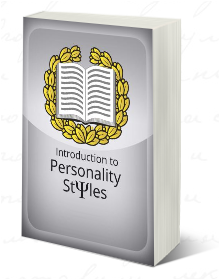Personality Inventory Test (ICD-11 PiCD)
You are here because one of your friends linked you to their Personality Inventory Test (ICD-11 PiCD) result:
Take the TestResults:

Your friend's most likely personality style is:
Dependent
Your test scores suggest that your personality style entails: An overt need for social approval, reassurance, and affection. You are willing to give up your own ambitions to serve others and fulfill their needs. You are sometimes referred to as a "needy" personality, even by people with little psychological knowledge. You are temperamentally docile, non-competitive, and passive. You have a strong need to belong and to be accepted and a hard time making demands on others or delivering bad news.
Explanation of Elements:
Negative Affectivity reflects a tendency toward emotional instability and frequent, intense negative emotions such as anxiety, anger, or guilt. Individuals with high Negative Affectivity may struggle with mood regulation, experiencing heightened sensitivity to stressors and excessive worry. This facet also includes self-criticism, feelings of inadequacy, and vulnerability to criticism or rejection. It represents a core component of many personality disorders, highlighting a pervasive pattern of emotional distress and difficulties in maintaining a stable sense of well-being.
Detachment captures a tendency to withdraw from social interactions and avoid emotional connections with others. It involves emotional coldness, lack of interest in forming relationships, and limited enjoyment of life’s pleasures. Individuals high in Detachment may seem indifferent, preferring solitude and resisting intimacy. This facet emphasizes isolation and a lack of responsiveness to social and emotional stimuli, often leading to difficulties in interpersonal functioning and reduced engagement with the external world.
Dissociality reflects disregard for the feelings, rights, or well-being of others. It includes manipulativeness, callousness, hostility, and a lack of remorse for harmful actions. Those high in Dissociality may exploit or harm others to achieve personal goals, showing limited empathy or concern for social norms. This facet aligns with traits observed in antisocial personality patterns, underscoring behaviors that prioritize self-interest at the expense of interpersonal harmony and ethical conduct.
Disinhibition describes a preference for impulsivity and a lack of self-control. Individuals with high Disinhibition may act on immediate desires without considering consequences, showing poor planning and decision-making. This facet includes tendencies toward irresponsibility, recklessness, and difficulty adhering to rules or routines. It reflects challenges in regulating behavior, emotions, and impulses, often leading to risky or self-damaging actions and difficulties in achieving long-term goals.
Anankastia highlights a preoccupation with order, perfectionism, and control. Individuals high in Anankastia strive for high standards, often at the expense of flexibility or efficiency. This facet includes rigid adherence to rules, difficulty delegating tasks, and excessive focus on details. While these traits may enhance organization, they can also lead to inflexibility, overwork, and strained relationships. Anankastia underscores the maladaptive potential of perfectionism and excessive control over oneself and one’s environment.
References
- Oltmanns JR, Widiger TA. A self-report measure for the ICD-11 dimensional trait model proposal: The personality inventory for ICD-11. Psychol Assess. 2018 Feb;30(2):154-169. doi: 10.1037/pas0000459. Epub 2017 Feb 23.
- Wright AGC, Simms LJ. On the structure of personality disorder traits: Conjoint analysis of the CAT-PD, PID-5, and NEO PI-3 trait models. Personality Disorders: Theory, Research, and Treatment. 2014;5:43–54.
GET THE FULL STORY
Become a lifetime member with a one-time payment
WHAT YOU GET
Access to members-only tests
Ability to track and save test results
Access to all of our eBooks (value $44.94)
Access to premium articles, type assessments, and infographics
Become a memberGET THE FULL STORY
Manual of Personality Styles
WHAT YOU GET
71-page manual, explaining the make-up of all personality styles, their hidden drives, and the theory behind the system.
Presented in an easy-to-read style and backed up by solid academic references.
14-day, no-questions-asked, money-back guarantee.
Order NowSave and monitor your results over time
Become a member today
Sign Up
